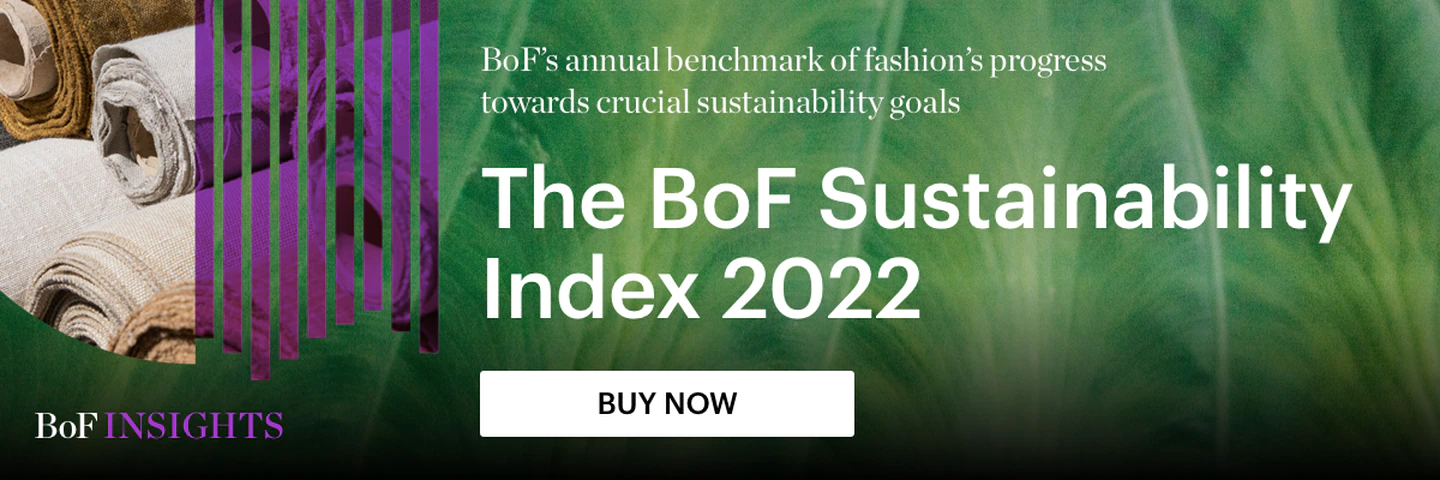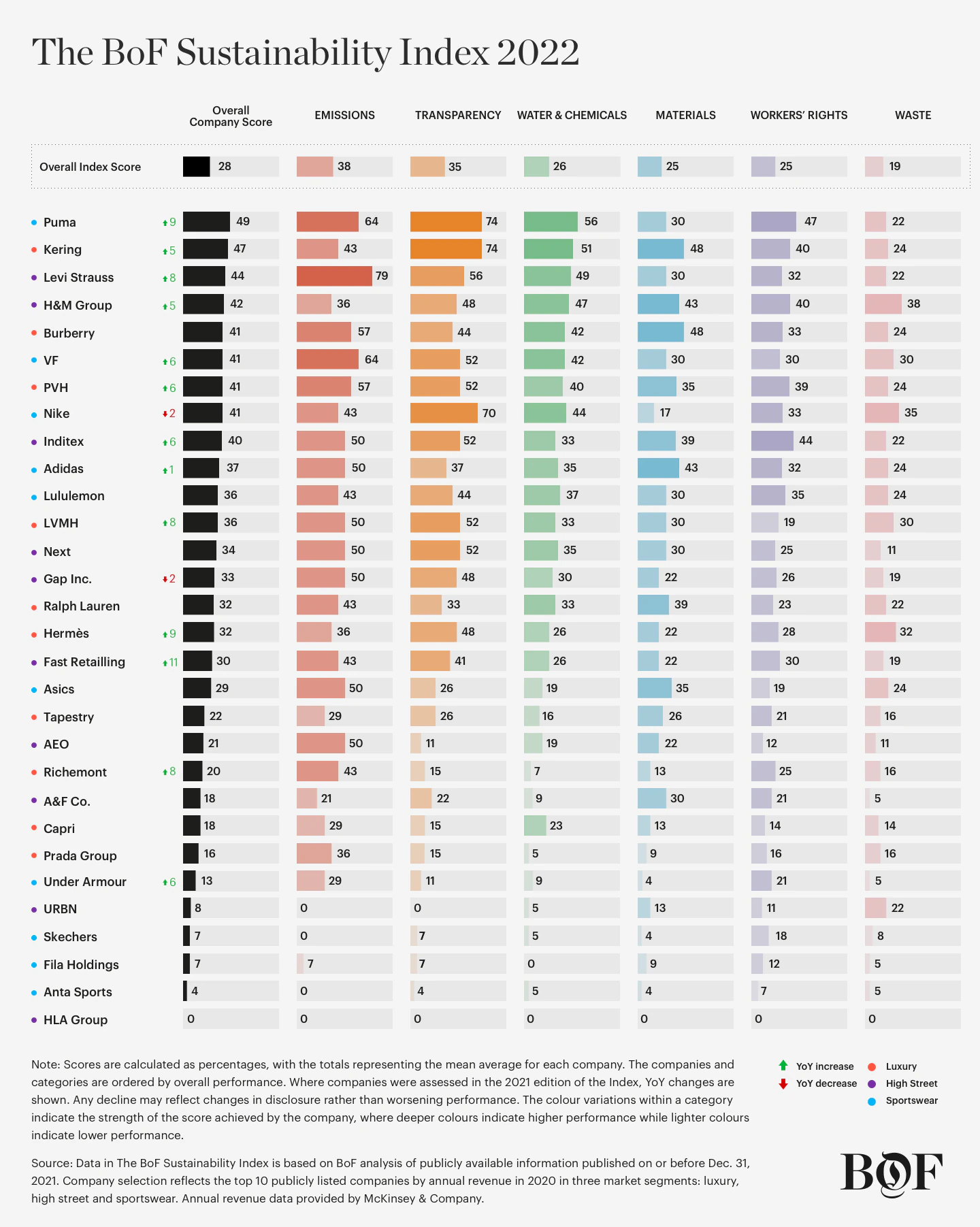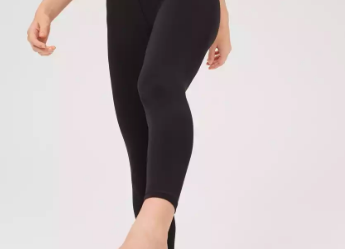
The current decade marks a critical inflection point for the fashion industry to transform in line with global ambitions to curb climate change and establish more responsible business practices.
Last year, The Business of Fashion created The BoF Sustainability Index, examining public disclosures from 15 of fashion’s largest players to benchmark the industry’s progress towards achieving ambitious environmental and social targets by 2030. The results demonstrated a substantial gap between major brands’ public commitments and meaningful, measurable actions.
This year, the Index has expanded in scope to examine the performance of the industry’s 30 largest publicly traded companies by revenue across three market segments: luxury, sportswear and high street. Our research team at BoF Insights assessed each company on more than 200 different data points across six impact categories: Transparency, Emissions, Water & Chemicals, Waste, Materials and Workers’ Rights.
With just eight years left to reach targets, the results are stark: performance in five out of six impact categories has worsened as incremental progress among the original cohort of 15 companies assessed last year was eclipsed by inaction across many of the new additions.
While technological innovation, policy cues and standardised reporting frameworks are helping to prompt action, limited accountability within the sector, poor-quality data and a lack of investment are holding back real transformative change.
Download the full report from BoF Insights for in-depth analysis of sustainability advances to date, key challenges facing the industry and the landscape for the year ahead.

Transformation, Interrupted
The window for the fashion industry to transform its business practices in line with global sustainability goals is rapidly closing, yet change remains incremental. The biggest players in the original cohort of 15 companies from last year have largely emerged as frontrunners, but they are still moving much too slowly to achieve targets by 2030. Meanwhile, several companies among the new additions have yet to meaningfully engage publicly with issues related to sustainability at all.
Overall, progress remains uneven, opaque and above everything, too slow:
- Slow Progress: The average overall score across 30 companies was just 28 out of 100. The highest performer overall was Puma with 49 points out of 100. Burberry was the only new addition to make it into the top 10 performers with an overall score of 41.
- Dragging Down Performance: The addition of 15 new companies to the Index dragged down the average score across all categories, bar Emissions. While the average score of the original cohort saw an increase from 31 points to 36 points year on year, the average score for the new additions was just 20 points.
- Most Improved: Fast Retailing was the fastest mover, progressing by 11 points to reach an overall score of 30 in the 2022 Index. Puma and Hermès improved their performance by 9 points each, achieving scores of 49 and 32, respectively.
- No Time for Laggards: Some of the industry’s biggest players — including URBN, Skechers, Fila Holdings, Anta and HLA Group — provided little or no public detail about plans to tackle their environmental and social impact, all scoring fewer than 10 points.
The Index Methodology:
The BoF Sustainability Index examines the 10 biggest public companies by annual revenue in 2020 across three distinct fashion industry verticals: luxury, high street and sportswear. It assesses performance across six impact categories: emissions, transparency, water & chemicals, waste, materials and workers’ rights.
Within those categories, the companies are benchmarked against 16 ambitious environmental and social targets established by The Business of Fashion in consultation with a group of respected global experts. Each of the targets contains a series of binary metrics (201 in total) that were scored “yes” or “no” based on information that was publicly available on or prior to December 31, 2021.
Year-on-year, the methodology has been updated and condensed; companies’ 2020 scores have been updated accordingly in this year’s report.
The companies assessed in The BoF Sustainability Index 2022 are: Abercrombie & Fitch Co., Adidas, American Eagle Outfitters, Anta Sports, Asics, Burberry Group, Capri Holdings, Fast Retailing, Fila Holdings Corp., Gap Inc., H&M Group, Hermès, HLA Group Corp., Inditex, Kering, Levi Strauss & Co., Lululemon Athletica, LVMH, Next PLC, Nike Inc., Prada Group, Puma, PVH Corp., Ralph Lauren Corp., Richemont, Skechers USA, Tapestry, Under Armour, Urban Outfitters Inc. and VF Corp.
More information on the methodology is available in our FAQs, or purchase the report from BoF Insights to review it in full.

The BoF Sustainability Index is based on a binary assessment that examines companies’ public disclosures up until Dec. 31, 2021. It should be viewed as a proxy for sustainability performance and not an absolute measure. BoF accepts advertising arrangements from a range of partners, some of which may appear in The Sustainability Index. Such advertising arrangements and the Index are handled by separate parts of the business. LVMH is part of a group of investors who, together, hold a minority interest in The Business of Fashion. All investors have signed shareholders’ documentation guaranteeing BoF’s complete editorial independence.



